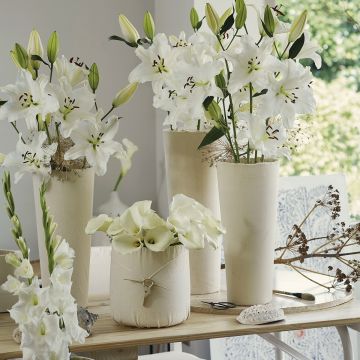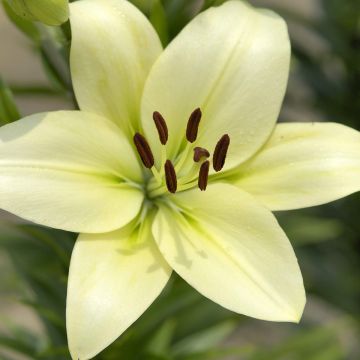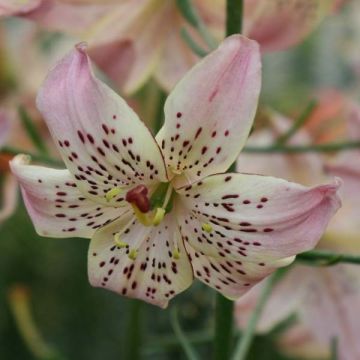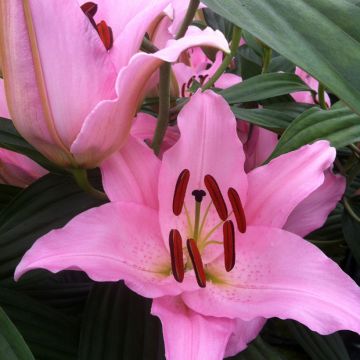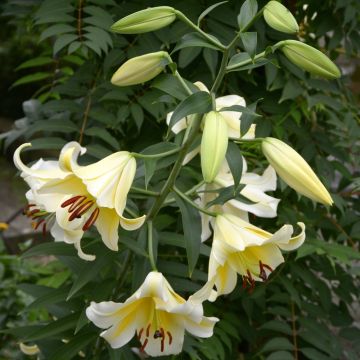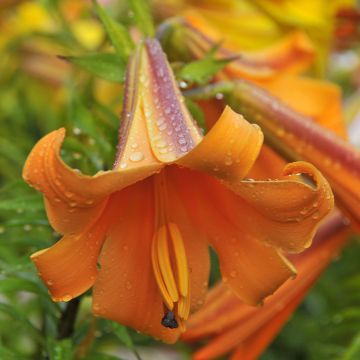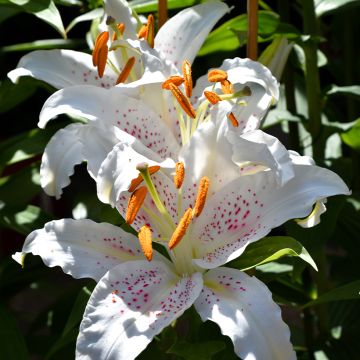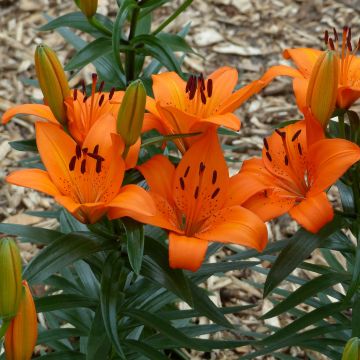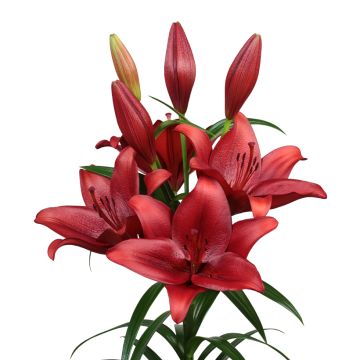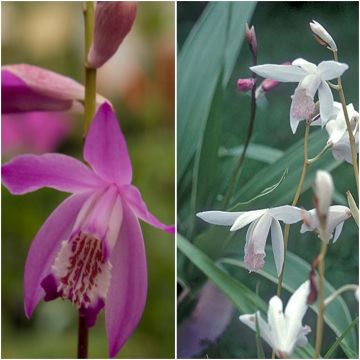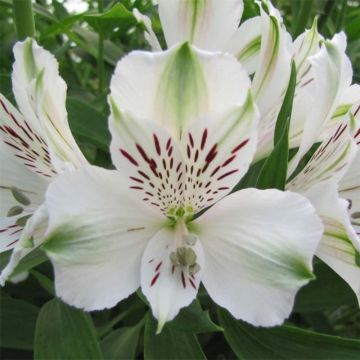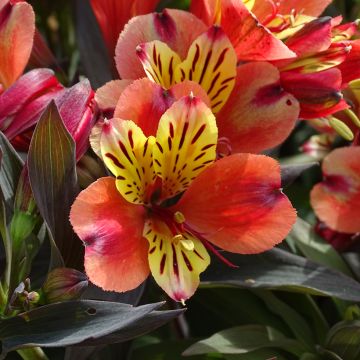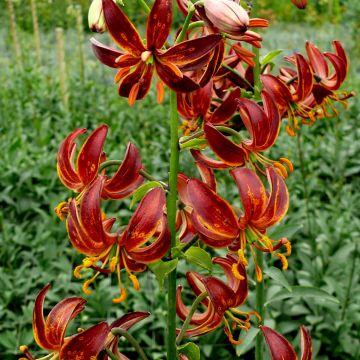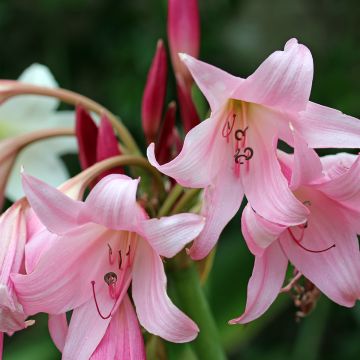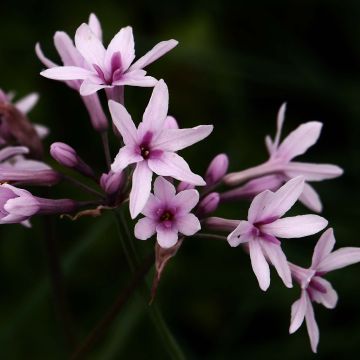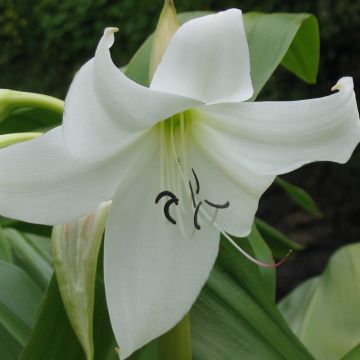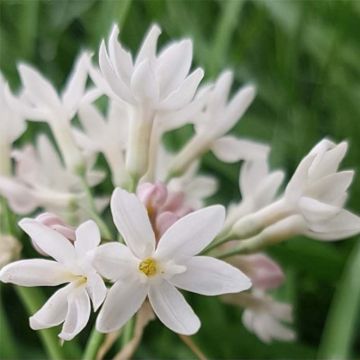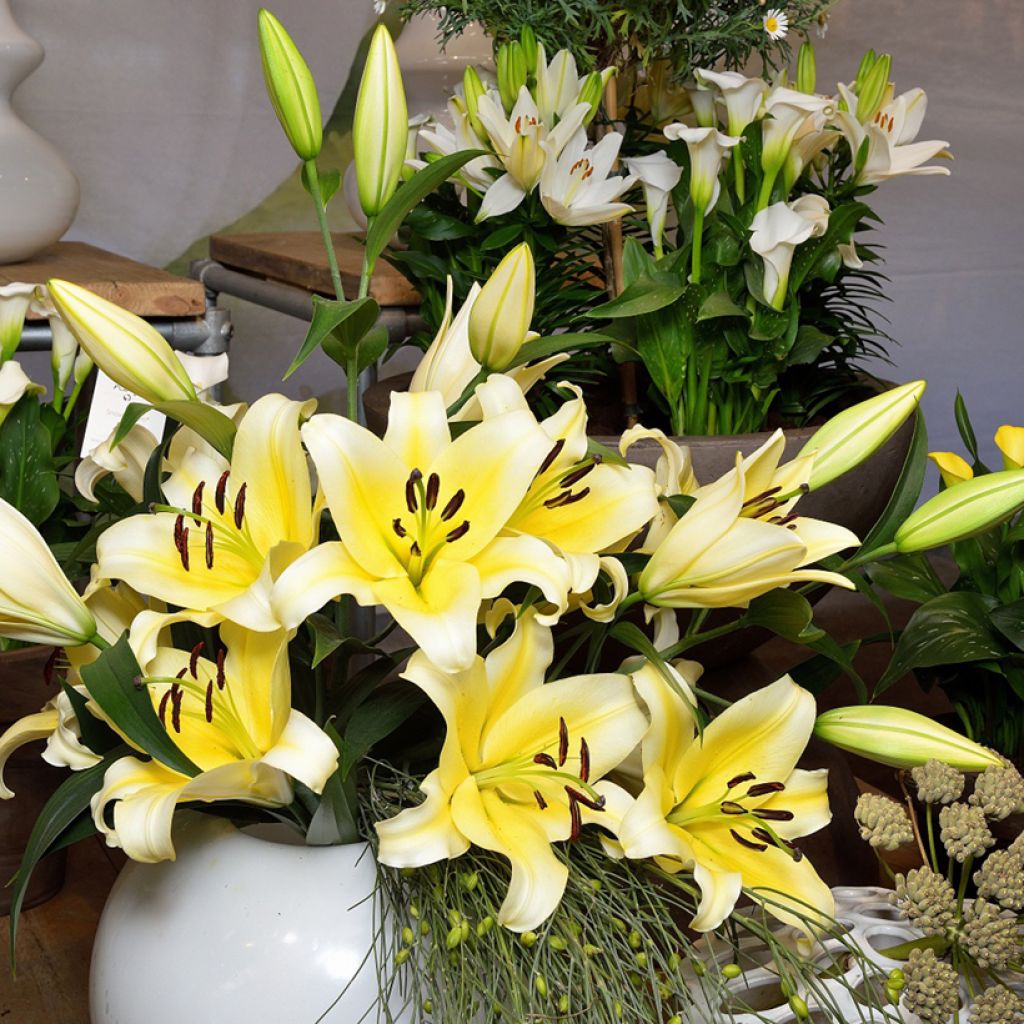

Lilium Catina - Lily
Lilium Catina - Lily
Lilium Catina®
Lily
Special offer!
Receive a €20 voucher for any order over €90 (excluding delivery costs, credit notes, and plastic-free options)!
1- Add your favorite plants to your cart.
2- Once you have reached €90, confirm your order (you can even choose the delivery date!).
3- As soon as your order is shipped, you will receive an email containing your voucher code, valid for 3 months (90 days).
Your voucher is unique and can only be used once, for any order with a minimum value of €20, excluding delivery costs.
Can be combined with other current offers, non-divisible and non-refundable.
Why not try an alternative variety in stock?
View all →This plant carries a 6 months recovery warranty
More information
We guarantee the quality of our plants for a full growing cycle, and will replace at our expense any plant that fails to recover under normal climatic and planting conditions.
Would this plant suit my garden?
Set up your Plantfit profile →
Description
The Lily or Lilium 'Catina' is part of a lineage of hybrid lilies between oriental and trumpet lilies. It gets its fragrance from the former and its colour quality from the latter. This variety produces large spreading flowers in a soft buttery yellow shade that fades to creamy edges. They are highly fragrant and bloom on a tall plant with lance-shaped, dark green leaves. This hybrid lily is a magnificent garden plant that gets better year after year, in well-drained soil free of limestone.
The Lilium genus belongs to the Liliaceae family. 'Catina' is part of a horticultural category called Group O/T. It can easily reach 1m or even 1.20m high, and 50cm wide when grown under optimal conditions after 3 or 4 years of cultivation. Flowering begins in mid-July and extends until the end of August depending on the climate and planting time (allow 14 to 15 weeks of cultivation before blooming). The flowers are pleasantly fragrant, especially in the evening. The flower consists of 6 long petals that gracefully recurve and are wavy at the edges. The throat is adorned with long green stamens with reddish-brown pollen and purple stigmas. The large, 18cm long and 3cm wide leaves are dark green. Their leathery texture tends to discourage lily beetles. The above-ground vegetation of lilies disappears in winter and emerges from the ground quite late in spring.
Lilies require a rich and well-drained soil. Any soil that retains winter moisture is harmful to the bulb. In acidic soil, their colours are more intense. It may be a good idea to cover the crown with an impermeable cover or thick mulch in winter, this technique is effective but not very attractive. Partial shade, especially in the afternoon, helps prolong the duration and preserve the brightness of the flowers. For a harmonious flower bed, combine Lilium 'Catina' with lilies in other shades of yellow, white, orange, gladioli, or daylilies. Incorporating grasses and perennial plants around the lilies is beneficial for shading the soil and stabilising the stems against wind and rain. Grow them on the edge of a grove, surrounded by small bushes such as rhododendrons or azaleas. This lily is also perfect for creating beautiful bouquets.
Report an error about the product description
Plant habit
Flowering
Foliage
Botanical data
Lilium
Catina®
Liliaceae
Lily
Cultivar or hybrid
Other Hybrid Lilies
View all →Planting and care
Lilium Catina thrives in humus-rich soil and does not like chalky and poorly drained soils: its bulb dislikes excess moisture in winter. You can place an impermeable cover over the crown in winter to protect it from excessive rainfall. Ideally, it should be planted in October or in spring, burying the bulbs 15 cm deep in a pocket of soil mixed with leaf compost. If planted in too shady a location, it will tend to elongate considerably. To maintain strong stems, choose an open area with a sunny but not scorching exposure. Surround the bulbs with a pocket of sand to prevent rot and attacks from slugs, while allowing them to grow more easily. Mark the planting location, as vegetation only starts in March-April. Protect young shoots from frost in case of severe cold. If red lily beetles appear, treat them immediately, as their larvae can devour all the leaves. The most effective method is to catch them manually but be careful as they drop as soon as they are touched, so put a box underneath. After flowering, it is a good idea to cut off the faded flowers halfway to keep the bed beautiful during summer. The bulbs of this lily multiply rapidly and can be divided every 3 or 4 years. If you prefer not to divide the clumps after four years, the tight cluster of bulbs will produce numerous, shorter stems with fewer flowers per stem; the plant will then resemble a bushy shrub, which is still very attractive. To obtain stems that are 2 m long with 30 to 40 buds each, you will need to divide the bulbs.
Tip for planting lilies in compact soil: The scaly bulbs of large lilies don't like clayey soils that suffocate them and cause rot. In Eastern Europe, the following technique is used to help these bulbs survive the winter. Plant them on 'benches' built above ground level. These benches consist of a layer of gravel, on which tightly packed branches are placed. Then cover everything with a thick layer of compost 20 to 30 cm deep. Plant the bulbs in the compost, on which a few ground-covering plants can also crawl.
On the terrace, you can create sumptuous pots with lilies. Choose a container that is large and deep enough (at least 16 cm in diameter for 1 bulb). Fill it with a mixture of leaf compost and sand. Plant the lilies in groups of 3 to 5 bulbs, 10-15 cm apart, then water generously. Place the pots in a cool room or outside once the frost has passed. The ambient temperature should be around 12°C. When the shoots appear, place the pot in a conservatory or a very bright room at a temperature of around 18°C. Apply liquid fertiliser twice a month until the flower buds appear.
Planting period
Intended location
Care
This item has not been reviewed yet - be the first to leave a review about it.
Similar products
Haven't found what you were looking for?
Hardiness is the lowest winter temperature a plant can endure without suffering serious damage or even dying. However, hardiness is affected by location (a sheltered area, such as a patio), protection (winter cover) and soil type (hardiness is improved by well-drained soil).

Photo Sharing Terms & Conditions
In order to encourage gardeners to interact and share their experiences, Promesse de fleurs offers various media enabling content to be uploaded onto its Site - in particular via the ‘Photo sharing’ module.
The User agrees to refrain from:
- Posting any content that is illegal, prejudicial, insulting, racist, inciteful to hatred, revisionist, contrary to public decency, that infringes on privacy or on the privacy rights of third parties, in particular the publicity rights of persons and goods, intellectual property rights, or the right to privacy.
- Submitting content on behalf of a third party;
- Impersonate the identity of a third party and/or publish any personal information about a third party;
In general, the User undertakes to refrain from any unethical behaviour.
All Content (in particular text, comments, files, images, photos, videos, creative works, etc.), which may be subject to property or intellectual property rights, image or other private rights, shall remain the property of the User, subject to the limited rights granted by the terms of the licence granted by Promesse de fleurs as stated below. Users are at liberty to publish or not to publish such Content on the Site, notably via the ‘Photo Sharing’ facility, and accept that this Content shall be made public and freely accessible, notably on the Internet.
Users further acknowledge, undertake to have ,and guarantee that they hold all necessary rights and permissions to publish such material on the Site, in particular with regard to the legislation in force pertaining to any privacy, property, intellectual property, image, or contractual rights, or rights of any other nature. By publishing such Content on the Site, Users acknowledge accepting full liability as publishers of the Content within the meaning of the law, and grant Promesse de fleurs, free of charge, an inclusive, worldwide licence for the said Content for the entire duration of its publication, including all reproduction, representation, up/downloading, displaying, performing, transmission, and storage rights.
Users also grant permission for their name to be linked to the Content and accept that this link may not always be made available.
By engaging in posting material, Users consent to their Content becoming automatically accessible on the Internet, in particular on other sites and/or blogs and/or web pages of the Promesse de fleurs site, including in particular social pages and the Promesse de fleurs catalogue.
Users may secure the removal of entrusted content free of charge by issuing a simple request via our contact form.
The flowering period indicated on our website applies to countries and regions located in USDA zone 8 (France, the United Kingdom, Ireland, the Netherlands, etc.)
It will vary according to where you live:
- In zones 9 to 10 (Italy, Spain, Greece, etc.), flowering will occur about 2 to 4 weeks earlier.
- In zones 6 to 7 (Germany, Poland, Slovenia, and lower mountainous regions), flowering will be delayed by 2 to 3 weeks.
- In zone 5 (Central Europe, Scandinavia), blooming will be delayed by 3 to 5 weeks.
In temperate climates, pruning of spring-flowering shrubs (forsythia, spireas, etc.) should be done just after flowering.
Pruning of summer-flowering shrubs (Indian Lilac, Perovskia, etc.) can be done in winter or spring.
In cold regions as well as with frost-sensitive plants, avoid pruning too early when severe frosts may still occur.
The planting period indicated on our website applies to countries and regions located in USDA zone 8 (France, United Kingdom, Ireland, Netherlands).
It will vary according to where you live:
- In Mediterranean zones (Marseille, Madrid, Milan, etc.), autumn and winter are the best planting periods.
- In continental zones (Strasbourg, Munich, Vienna, etc.), delay planting by 2 to 3 weeks in spring and bring it forward by 2 to 4 weeks in autumn.
- In mountainous regions (the Alps, Pyrenees, Carpathians, etc.), it is best to plant in late spring (May-June) or late summer (August-September).
The harvesting period indicated on our website applies to countries and regions in USDA zone 8 (France, England, Ireland, the Netherlands).
In colder areas (Scandinavia, Poland, Austria...) fruit and vegetable harvests are likely to be delayed by 3-4 weeks.
In warmer areas (Italy, Spain, Greece, etc.), harvesting will probably take place earlier, depending on weather conditions.
The sowing periods indicated on our website apply to countries and regions within USDA Zone 8 (France, UK, Ireland, Netherlands).
In colder areas (Scandinavia, Poland, Austria...), delay any outdoor sowing by 3-4 weeks, or sow under glass.
In warmer climes (Italy, Spain, Greece, etc.), bring outdoor sowing forward by a few weeks.






























